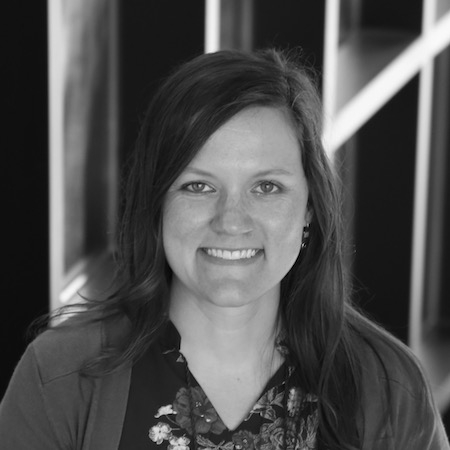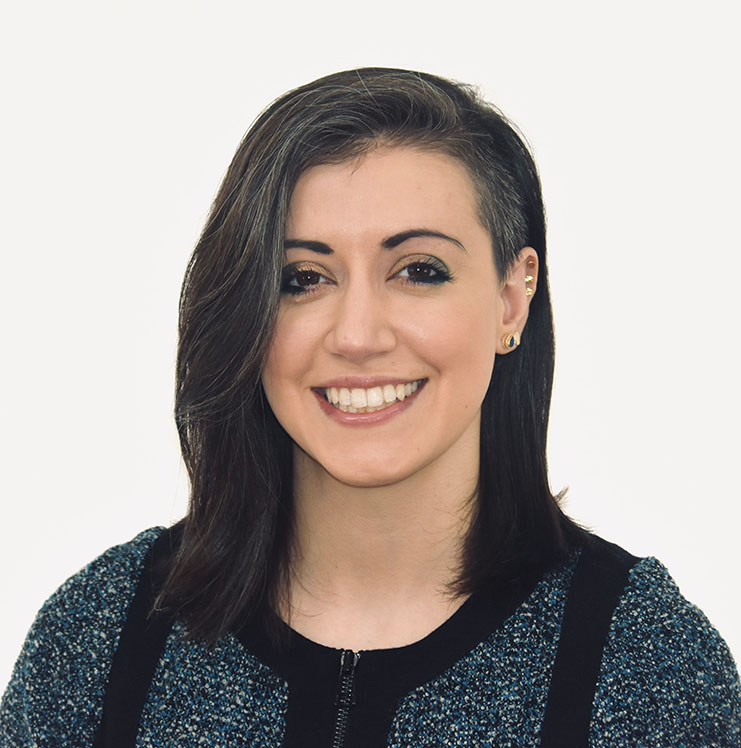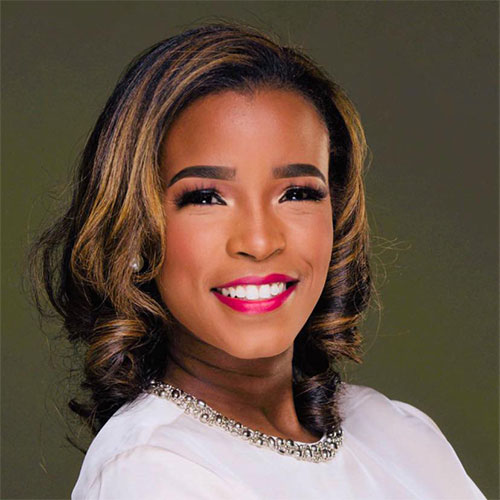The Harold F. Cottingham Colloquium, sponsored by the Psychological and Counseling Services (PCS) program, aims to:
- Maintain the sense of excellence and leadership in the Psychological and Counseling Services Program that typified the work of Harold F. Cottingham
- Help current students understand the ways in which their graduate education relates to diverse options for professional employment
- Build a stronger sense of community among current and former students, as well as current and former faculty

Taylor Thompson
Dr. Taylor Thompson was born in Oxnard, California. She grew up in Titusville, Florida, which is across the river from Kennedy Space Center. Dr. Thompson attained a B.A. from Florida State University in 2007, majoring in Psychology and English—Creative Writing. She then received her M.A. in Psychology from Wake Forest University and her Ph.D. in the Combined Counseling Psychology and School Psychology Program at Florida State University. During her doctoral program, she worked for three years as a graduate assistant liaison between the FSU Student Disability Resource Center and the Student Athlete Academic Services offices.
For her pre-doctoral internship, Dr. Thompson matched at Nova Southeastern University’s Psychology Services Center in Fort Lauderdale, Florida, and she completed her post-doctoral residency at Keystone Behavioral Pediatrics in Jacksonville, Florida. She became a licensed psychologist in 2017. As fate would have it, she also later became the Clinical Director of the FSU Adult Learning Evaluation Center in 2017, where she was a faculty member, administrator, and clinical supervisor for six years. In the summer of 2023, Dr. Thompson recently transitioned to a new role as an assistant professor at the FSU College of Medicine’s Office of Student Counseling Services, providing mental health and academic support services to COM students.
Dr. Thompson has been involved in psychoeducational assessment in some fashion since 2005, and her clinical background has included work with both adults and children with anxiety, ADHD, learning disabilities, autism spectrum disorders, mood disorders, and behavioral disorders. Over the years, Dr. Thompson has supervised over 100 graduate students in providing assessments and therapy. These mentoring relationships and shepherding ALEC through the COVID pandemic are what Dr. Thompson considers her most important professional accomplishments so far.
Dr. Thompson’s research interests have focused on the experiences of young and emerging adults from diverse backgrounds. Her master’s thesis was a study of the model minority stereotype’s influence on adolescent adjustment under Dr. Lisa Kiang; her doctoral dissertation was a meta-analysis of gender differences in creativity under Dr. Steven Pfeiffer. Dr. Thompson has presented at conferences for the American Psychological Association and the Society for Research in Child Development, and she has published in journals, such as the Asian American Journal of Psychology and Psychology of Aesthetics, Creativity, and the Arts. She is also an editorial board member for the Journal of Youth and Adolescence.
With regard to professional service, Dr. Thompson is actively involved in the Florida Psychological Association. She is currently the chair of the continuing education committee for the state of Florida and is the secretary of the Capital Chapter. She is also involved in FPA’s political efforts to advocate for the profession of psychology, such as the recent lobby for and successful passing of PSYPACT in Florida. Dr. Thompson also has a consulting role at PracticeWise, LLC, an organization dedicated to compiling evidence-based resources and training for providers of children’s mental health.
Throughout her life, Dr. Thompson has worked as a cashier in a meat market, as a summer camp counselor, and in retail at record and bookstores. As an undergrad student, she was originally interested in majoring in Meteorology or French. Her parents are an accountant and a painter, and her sister is an occupational therapist in the United States Army. Dr. Thompson is fascinated by career choices, personal purpose, and meaning-making, and she enjoys helping others find and stay flexible on their paths.

Samantha "Sam" Ritts
Sam Ritts (she/her) is an eighth year School Psychologist who has worked in Maryland and in the Anne Arundel County Public Schools (AACPS) system for nearly six years. She is a Nationally Certified School Psychologist (NCSP). Prior to working for AACPS, she worked in the Grady County School District in Cairo, Georgia; interned in Thomas County Schools in Thomasville, Georgia; and earned her combined M.S. and Ed.S. degrees in Counseling and Human Systems with a specialization in School Psychology from the Florida State University in Tallahassee, Florida in 2016. She is also working on her administrator certificate at Mount St. Mary’s Instructional Leadership Program under the Maryland Leads grant in collaboration with AACPS.
Since moving to Maryland, Sam served three years as President of her Local School Psychology Organization (LSPO; SPAAAC) and had subsequently held the role of LSPO Representative to the Maryland School Psychologists’ Association (MSPA) during that time. As well, she spent one year as Past-President of SPAAAC. Sam has been both Membership Committee Co-Chair and Chair, participates in the Legislative Committee, is a member of the Public Affairs Committee, member of the Assistance to Locals Subcommittee of Public Affairs, and has chaired the National School Psychology Week Subcommittee for Public Affairs. She volunteers reviewing continuing education provider renewals for the National Association of School Psychologists (NASP). In her school district, Sam is Middle School Professional Learning Committee (PLC) Co-Leader, on the LGBTQ+ Advisory, and a member of the Positive Psychology PLC. She is the continuing Secretary for MSPA. As well, she is leading salary negotiations for AACPS School Psychologists for the 2025 fiscal year under new legislation (Blueprint for Maryland’s Future), through her union’s negotiating team.
Sam’s passions include LGBTQ+ issues, as well as suicide prevention and intervention. Sam is involved in a number of broader and unrelated issues, as well. She has attended three Legislative Days and two Lobby Nights through MSPA; has written and orally testified at the AACPS BOE; has orally testified at the Maryland Senate on behalf of MSPA; and has built a relationship with local Legislative Delegates through these ventures which help further MSPA’s mission.

Inika Pierre Williams
Dr. Inika Pierre Williams career has reached across several areas, including public education, higher education, state government, and youth development programs for under-represented students. She completed her doctoral studies in educational leadership, M.S. and Ed.S in Counseling from Florida State University and her B.S. in Education from Florida A&M University.
Dr. Williams is the Associate Director of Policy with Attendance Works, a national and state initiative that works to advance student success through policy and practice. Dr. Williams is responsible for developing and executing a public policy agenda and working closely with government and advocacy leaders to advance student outcomes. Her previous professional roles include serving as the Director of Pre-Collegiate Programs at Florida State University where she notably acquired over $1.3 million to build pipeline tutoring and mentoring programs to prepare underrepresented students for higher education. She also served as Statewide Director of the College Reach-Out Program and Project Director for a $1.6 million federal initiative to develop school-based mental health programs and services in the Florida panhandle with the Florida Department of Education.
Fostering learning opportunities for young people is a personal passion for Dr. Williams who has expertise in youth development and programming. She has been recognized as one of the “25 Women to Know in Tallahassee” by the Tallahassee Democrat, a "Future Five" award recipient by Access Tallahassee, and awarded with the Alpha Kappa Alpha Valerie Bryant Justice Award for her commitment to women and children. Dr. Williams serves on the board of directors of the PACE Center for Girls, Big Bend Habitat for Humanity, the Tallahassee National Pan-Hellenic Council, and was appointed to the City of Tallahassee/Leon County Commission on the Status of Women and Girls. She is a member of Leadership Tallahassee Class 39 and Alpha Kappa Alpha Sorority, Inc.
In 1958, Dr. Harold F. Cottingham became the founder and chair of the Department of Guidance and Counseling at Florida State University. As one of the “Forty-Niners,” those young faculty who shaped the development of our current graduate research university out of the Florida State College for Women, Harold’s bold leadership laid the foundation for an academic unit that remains vibrant and strong today. Harold retired from FSU in 1980 and died in 1981 at the age of 67.
Dr. C was known for his work with groups, and he viewed such encounters as a primary vehicle in counselor training. The social interactions in classes and professional meetings were something that he enjoyed and valued. The idea of a meeting, a professional exchange in a face-to-face situation, or an informal professional colloquium would have appealed to Harold. Moreover, it is something that comes easily to counselors and counseling psychologists.
An interview with Harold F. Cottingham
Giddan, N. S. (1979). An interview with Harold F. Cottingham. Professional School Counseling, 27, 214-221. Reprinted with permission, American School Counseling Association.
2022 Cottingham Colloquium video
2022 Cottingham Colloquium photos
2019 Cottingham Colloquium video
2019 Cottingham Colloquium photos
2018 Cottingham Colloquium video
2018 Cottingham Colloquium photos
2017 Cottingham Colloquium videos
2017 Cottingham Colloquium Agenda
2016 Cottingham Colloquium videos
2016 Cottingham Colloquium Agenda
2015 Cottingham Colloquium videos
2015 Cottingham Colloquium photo
2015 Cottingham Colloquium Agenda
2014 Cottingham Colloquium photos
2014 Cottingham Colloquium videos
2014 Cottingham Colloquium Agenda
2013 Cottingham Colloquium photos
For years, faculty and alumni have sought to establish a new program and tradition that would honor the memory and legacy of “Dr. C” as the wellspring of training for more than a thousand professional counselors and psychologists. Such recognition is long overdue. To honor this legacy, Dr. Peter Scanlon helped establish the Harold F. Cottingham Memorial Fund to provide support for colloquia focused on professional development for professional counselors, psychologists and graduate students.
Fall 2011 marked the first Harold F. Cottingham Colloquium for Professional Counselors and Psychologists, hosted by the Program in Psychological Services and the Career Center at Florida State. Distinguished speakers included College of Education alumni, Dr. Peter Scanlon and Dr. Joel Gecht of Impact Solutions, Inc. in Cleveland, Ohio. The colloquium was recorded and is available here.
In Fall 2012, the distinguished speakers included Dr. Jan Greenwood of Greenwood/Asher & Associates in Miramar Beach, FL. A recording of her presentation is available here. In addition, the colloquium provided a panel of distinguished private practice practitioners, including Dr. Greenwood, Dr. Peter Scanlon, executive director of South Bay Mental Health in Boston, and Dr. Joe Garmon, a licensed psychologist in Thomasville, GA. Click here to view the panel discussion.
In 2013, we honored the class of 1973 and friends and focused on the topic of creating a professional identity. Speakers included Dr. Linda Miles, Dr. Carole Minor, and Dr. Joe Padronaggio. Click here to view the presentations. Consulting from an international perspective was the topic for 2014, and included Dr. Denise Saunders and Dr. Donghyuk Lee as presenters and faculty discussants. The presentation and panel discussions can be accessed here.
Harold was a licensed psychologist and a founder of the Eastwood Counseling Center in Tallahassee. This program is viewed as an opportunity to bridge “town and gown” relations in the counseling profession, and is open to counseling professionals in the larger community, as well as alumni, friends, faculty and students. This mix of individuals provides an opportunity for collaboration on training, practice, and research.
In addition to showcasing topics pertaining to innovative practice or research in psychological services, this Colloquium is also a social event, featuring food and a day and evening program. Harold once characterized a group meeting that was fun and productive as having a “high level of conviviality,” and thus, a goal of the event is to make this an enjoyable professional experience for all attending. The Colloquium will be held at a time of the year when important features of the University and the Tallahassee area can be incorporated into the festivities. Accomplishments of current faculty and students, as well as alumni, will be highlighted.
Our grads go on to do great things! Check out a few of our alumni below who have started their own businesses:
Mary-Catherine Riner, PhD
Greenville/Anderson Riner Counseling, LLC, Greenville, SC
https://rinercounseling.com/
Nolan Katz, PhD; Sheba Katz, PhD
Katz Counseling & Educational Psychology, Inc., Fort Myers, FL
http://www.katzpsychology.com/
Abigail Levrini, PhD
Psych Ed Coaches, PLLC, Jacksonville, FL
https://www.linkedin.com/in/psychedcoaches/
Stefanie J. Coppes, PhD
Coastal Neuropsychology, Clearwater, FL
http://www.coastalneuropsychology.com/about/
Marissa Petralia, PhD
Premier Psychology, Naples, FL
http://www.premierpsychnaples.com/
Julia Kronholz, PhD
Utah Psychological Evaluation & Consultation, LLC, Salt Lake City, UT
https://www.utahpec.com/
Cassandra Smisson Hayes, PhD
Smisson Psychology Services, PA, Houston, TX
https://www.smissonpsychology.com/
Katie Merricks, PhD
Katie Merricks Counseling, LLC, Clearwater, FL
https://www.drkatiemerricks.com/
Elyssa Barbash, PhD
Tampa Therapy, LLC, Tampa, FL
http://tampatherapy.com/
Alicia Mahler, PhD
Freedom First Psychological Services, PLLC, Latham, NY
https://www.freedomfirstpsych.com/alicia-mahler
Theodora P. Coffman, PhD
Shoreline Psychological Services, LLC, St. Petersburg, FL
https://shorelinepsychology.com/about-us
Angela Canto, PhD
Southeastern Behavioral Health, Tallahassee, FL
https://counselingschoolpsych.com

